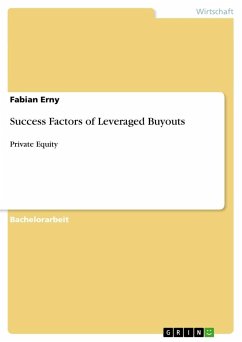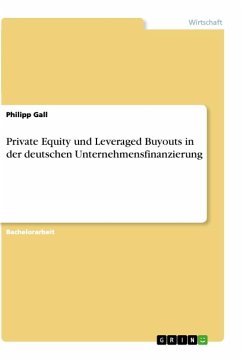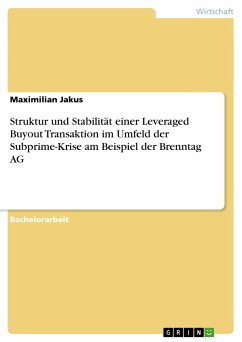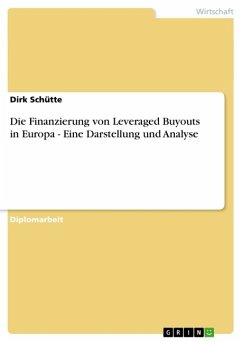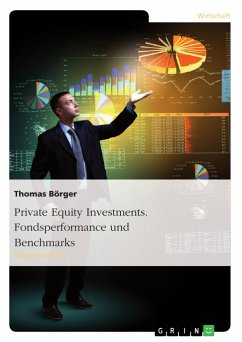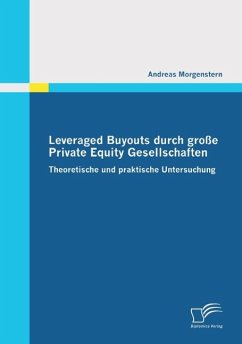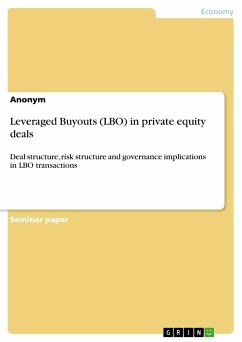
Leveraged Buyouts (LBO) in private equity deals
Deal structure, risk structure and governance implications in LBO transactions

PAYBACK Punkte
0 °P sammeln!
Seminar paper from the year 2007 in the subject Business economics - Investment and Finance, grade: 1,3, European Business School - International University Schloß Reichartshausen Oestrich-Winkel, course: Corporate Finance, language: English, abstract: Igniting in 2005, the discussion about highly leveraged transactions conducted by financial institutions became a matter of great controversy in German politics as well as in the media. Fuelled by an influential voice in politics, LBO firms became the face of capitalism's evil by calling them a "Heuschrecke", an animal much feared in history fo...
Seminar paper from the year 2007 in the subject Business economics - Investment and Finance, grade: 1,3, European Business School - International University Schloß Reichartshausen Oestrich-Winkel, course: Corporate Finance, language: English, abstract: Igniting in 2005, the discussion about highly leveraged transactions conducted by financial institutions became a matter of great controversy in German politics as well as in the media. Fuelled by an influential voice in politics, LBO firms became the face of capitalism's evil by calling them a "Heuschrecke", an animal much feared in history for its exploitive behaviour and risks to the mediaeval agrarian economy (Die Zeit, 2005). In terms of today's Heuschrecke, according to public voice, downsizing and raidingrepresent the major risks attributed. Empirics show that the risk of downsizing in LBOs is falsified and that the occurrence of raids is rather irrelevant in today's buyout universe. However, even if both risks held,each would exhibit a comparably low impact on the economy as a whole. Contrary, the empirically evident high-impact risk of over-indebtedness in leveragedtransactions is widely neglected. The negligence of this risk-issue is dangerous, particularly with regard to the recent developments in the LBO industry, debt capital markets and the world's economy. First, analysing the latest LBOs conducted, it appearsthat the historical failures, such as the buyouts of Revco and RJR Narbisco are widely forgotten, as gearing ratios have become aggressive again. Second, the subprime crisis, which was exported from the US real estate sector into global capital markets, causedliquidity shortages - AA rated banks were not willing to lend money to their equally rated peers anymore - which led to a credit crisis. This credit crunch provoked that, even though in the US the prime rate has been reduced by 50 bp, and in the Eurozonethe prime rate was not increased as planed, 'money became expensive'; FIBOR, LIBOR and EURIBOR sharply increased and remained high. This resulted in high debt funding costs. Third, taking a look at the world economy, America might face an economicdownturn in the near future with decreasing consumption and increasing inflation. Each of the three aspects alone increases the default risk in a highly leveraged firm. In a scenario where all three jointly appear, the probability of default sharply increases. In addition to the risk named, the threat an LBO imposes on global debt capital markets is evident, therefore, it can not be ignored any longer in Europe. While it was already heavily discussed in America's late 80s buyout-boom, it slowly gains prominence in discussions about LBO transactions.




